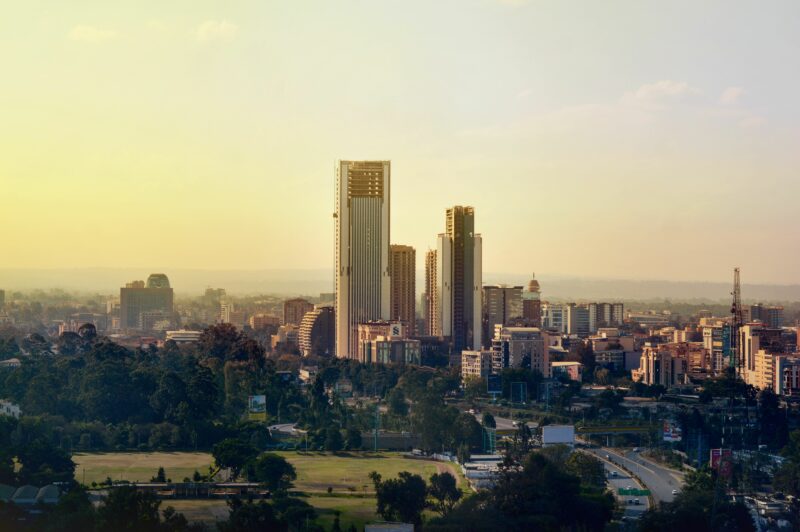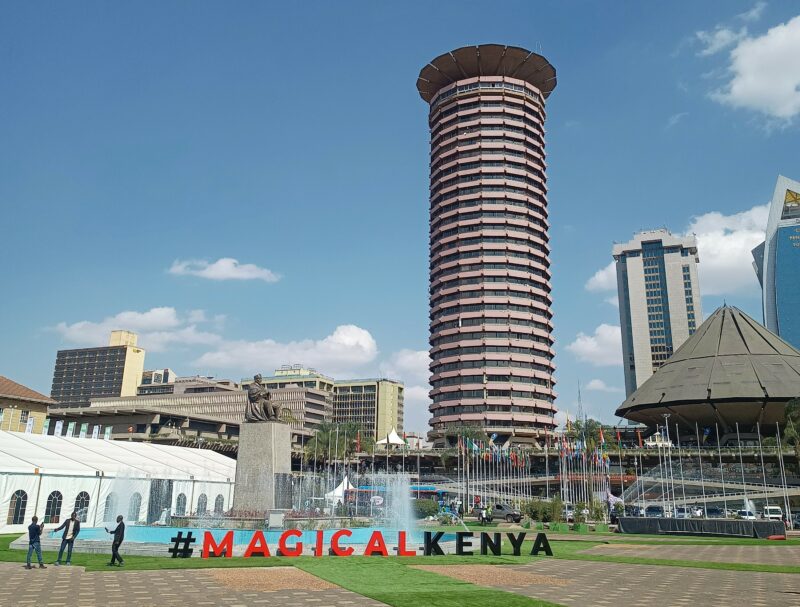A changing tide: thoughts from the Africa Climate Summit
Our Policy Director reflects on her recent time at the Nairobi meeting of African climate leaders

Summer 2023 might be remembered as the coolest of our lifetime. As global heating continues to worsen, this year has already brought a litany of extreme weather with heatwaves, fires, droughts and floods across the planet, with dramatic consequences. Climate scientists also tell us that we still have time to avert the very worst possible outcomes, but we need to accelerate our responses. The end of summer of 2023 is also bringing us hope, as the international community gathers in key events that should accelerate the much-needed change. And more importantly, drive financial flows towards those most in need and most affected by climate change.
Despite the criticism, the Summit for a New Global Financial Pact held in Paris in June 2023 has created space for a new dialogue, with the Global South taking the driving seat. The Bridgetown Initiative – first put forward by Mia Mottley, Prime Minister of Barbados, at the 2022 COP climate negotiations – have been at the very center of the discussion. The Summit delivered a roadmap towards debt sustainability and climate finance, requiring specific actions by specific dates, bringing hope for years to come. All eyes turn now to more traditional events later in the year, including the G20 meeting in September, the International Monetary Fund and World Bank annual meetings, and the COP28 in Dubai.
“ The Nairobi Declaration makes a tough call to the international community to secure funding for climate mitigation, adaptation and loss and damage in Africa.”
But without doubt, the first Africa Climate Summit – held last week in in Nairobi – has proved that things are finally changing. Under the leadership of Kenyan President William Ruto, together with the Africa Union Commission and other African countries, the Summit has been a success. Pessimistic rhetoric is out of the official speeches and declarations, presenting a more accurate image of the African continent.
I was lucky enough to be there, and could really feel this change in all the conversations, and of course in the many events and meetings around the Summit. A diverse, young, resilient, powerful, resourceful and motivated continent, ready to transform itself into a green powerhouse, in collaboration with the rest of the world. The Nairobi Declaration clearly outlines recommendations, pledges and demands to boost Africa’s power and role in the global financial architecture and international platforms.
The Nairobi Declaration makes a tough call to the international community to secure funding for climate mitigation, adaptation and loss and damage in Africa. At the same time, African countries have committed to develop and implement policies and frameworks to develop green growth and fair and inclusive societies. Here, debt relief interventions are seen as key, as African countries pay about five times more to borrow money than others, worsening an already severe debt crisis.

The Declaration also highlights the many opportunities that the blue and green economy brings to the continent, minimizing environmental impacts and protecting Africa’s immense natural capital, with a role for carbon markets. It urges world leaders to back a proposed a global carbon tax, and takes into consideration young Africans’ demands for a larger role in decision-making, as captured in a Youth Declaration launched just ahead of the main Summit.
There is an imperative to shift the climate and carbon narrative towards a community-centered approach. Not enough attention has been paid to gender, inequalities and citizen engagement. If green deals and climate action are not widely understood, accepted and supported by the citizens, success will be limited. This is fundamental as climate action will lift Africans out of poverty, including energy poverty, as it is fundamental to power prosperity and the new paradigm of green industrialization. In this world of polycrisis, climate change is but one of multiple intersecting challenges, alongside biodiversity, food, water scarcity, energy security, conflicts, cost of living, rising inequalities and natural hazards. And in all these crises, women and girls always are disproportionately affected.
“ The future will be green, and female, or it won’t be. Let’s work together.”
We in the Green Economy Coalition understand the eco-social contract as a framework for action. To tackle the global ecological and economic crises, it must provide durable answers to climate change, biodiversity loss, and growing inequality. Tripling renewables in the energy mix is technically feasible, but will it happen fast enough? Will it be circular and resource efficient? And, more importantly, will it be fair?
Transformative policies requires deep and enduring popular support, and achieving this will not be easy. It will be necessary to understand how far the available civic and political space will allow for open deliberation of radical pathways of change, which institutions are best placed to animate a movement for a new eco-social contract for a green economy, and which mechanisms are likely to be most effective in building momentum and shifting investment.
This is an urgent and compelling agenda, in Africa and elsewhere. The future will be green, and female, or it won’t be. Let’s work together.
- Sofia Martinez, Policy Director, GEC


